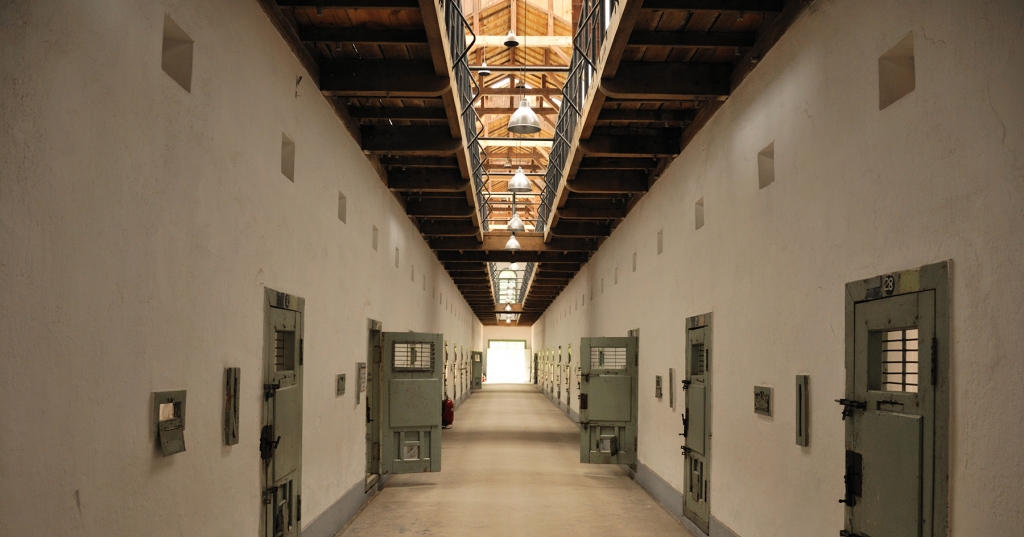-
Tips for becoming a good boxer - November 6, 2020
-
7 expert tips for making your hens night a memorable one - November 6, 2020
-
5 reasons to host your Christmas party on a cruise boat - November 6, 2020
-
What to do when you’re charged with a crime - November 6, 2020
-
Should you get one or multiple dogs? Here’s all you need to know - November 3, 2020
-
A Guide: How to Build Your Very Own Magic Mirror - February 14, 2019
-
Our Top Inspirational Baseball Stars - November 24, 2018
-
Five Tech Tools That Will Help You Turn Your Blog into a Business - November 24, 2018
-
How to Indulge on Vacation without Expanding Your Waist - November 9, 2018
-
5 Strategies for Businesses to Appeal to Today’s Increasingly Mobile-Crazed Customers - November 9, 2018
US Justice Department to Phase Out Use of Private Prisons
The decision, announced by Deputy Attorney General Sally Yates in a memo, followed a report last week by the Justice Department’s inspector general that criticized private prisons for failing to maintain the same level of safety and security as facilities run by the Federal Bureau of Prisons.
Advertisement
“Private prisons served an important role during a hard period, but time has shown that they compare poorly to our own Bureau facilities”, Yates wrote in the memo.
The report concluded that private prisons were more risky than prisons operated by the Federal Bureau of Prisons, and that private prisons had higher incidents of violence and inmate contraband than state-run facilities.
In the memo, Yates said that by May 2017, the bureau is expected to house just 14,200 inmates in private prisons – a small percentage of the approximate 195,000 federal inmates now in the US.
Yates said that there are 13 privately run prisons in the Bureau of Prisons system.
In her memo, Yates said that private prisons “served an important role during a difficult time period”, but it was “really hard to determine whether private prisons are less expensive”.
Since peaking in 2013 at almost 220,000 inmates, the federal prison population has declined in recent years to fewer than 194,000.
Although experts believe this change is significant, private federal prisons only house a small fraction of the inmate population in our country. This, she said, provided an opportunity to reevaluate the US government’s relationship with private prisons, which in 2014 alone cost the Bureau $639 million.
A recently published, four-month-long investigation by Mother Jones reporter Shane Bauer gave a harrowing account of the violence and poor health conditions inside one private prison, where he worked undercover as a corrections officer.
The announcement of the phase out comes about a week after an Office of the Inspector General report that found prisons that held government contracts were less safe and secure than those run directly by the BOP.
The Justice Department is directing the Bureau of Prisons to take steps to reduce and ultimately end the use of privately operated prisons. Contracts with private prison operators are not being renewed, or they are being scaled back dramatically.
Marc Mauer, executive director of The Sentencing Project, told FSRN the move is a milestone in terms of challenging mass incarceration as national policy.
The memo said about 15 percent of federal inmates were in private prisons in 2013.
She said they would then be reduced or allowed to expire, though none would be terminated prematurely. The BOP paid private companies $639 million in fiscal year 2014.
The federal prison population is now at 193,299.
Elzea says the agency uses a mix of privately operated and public facilities “to meet the agency’s detention needs while protecting taxpayer resources”.
Advertisement
But, the Federal Bureau of Prisons only accounted for 11 percent of CCA’s revenue in 2015, according to a recent filing with the Securities and Exchange Commission (SEC).




























